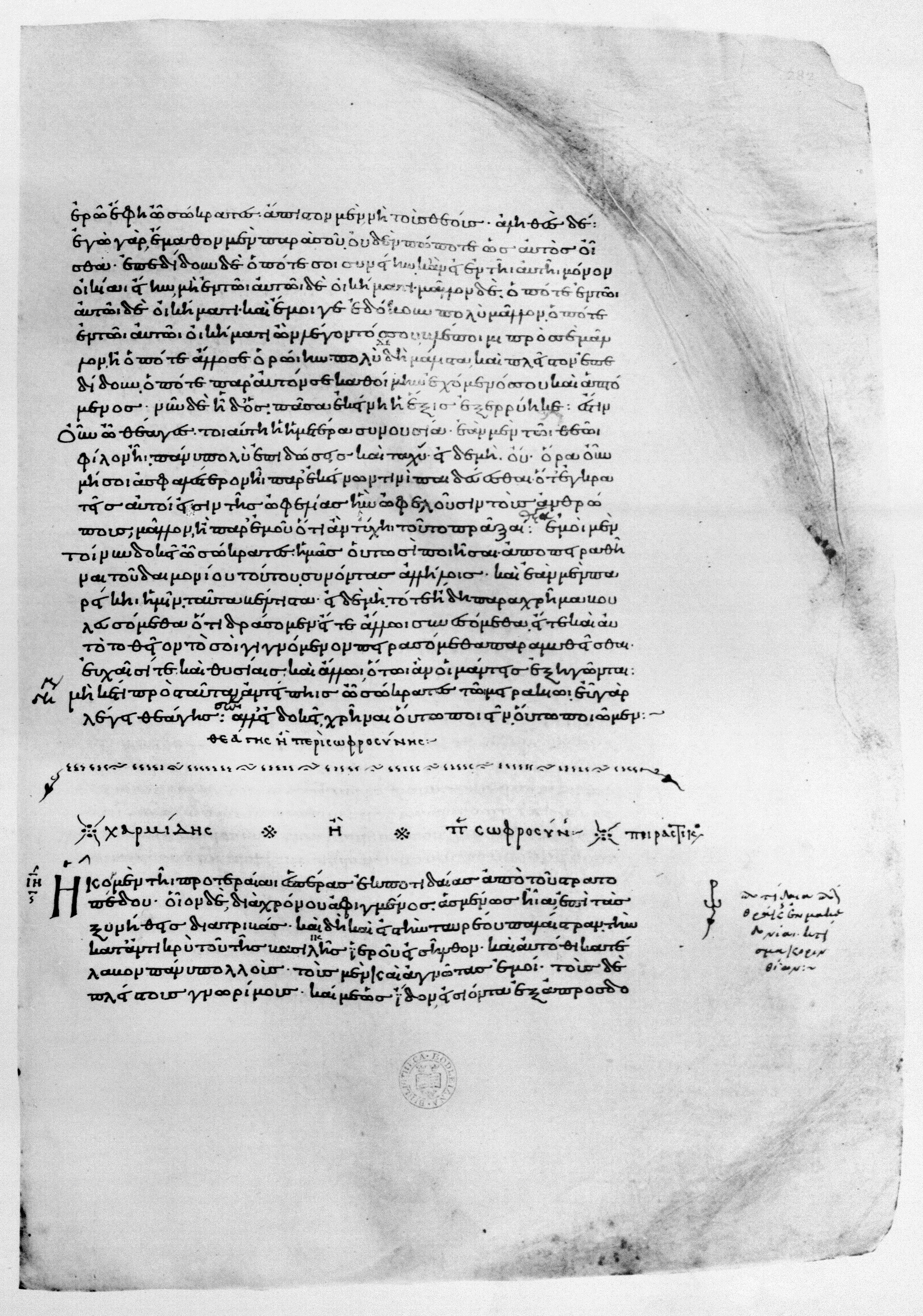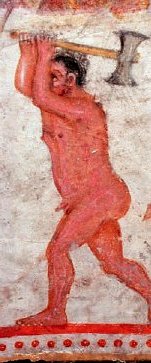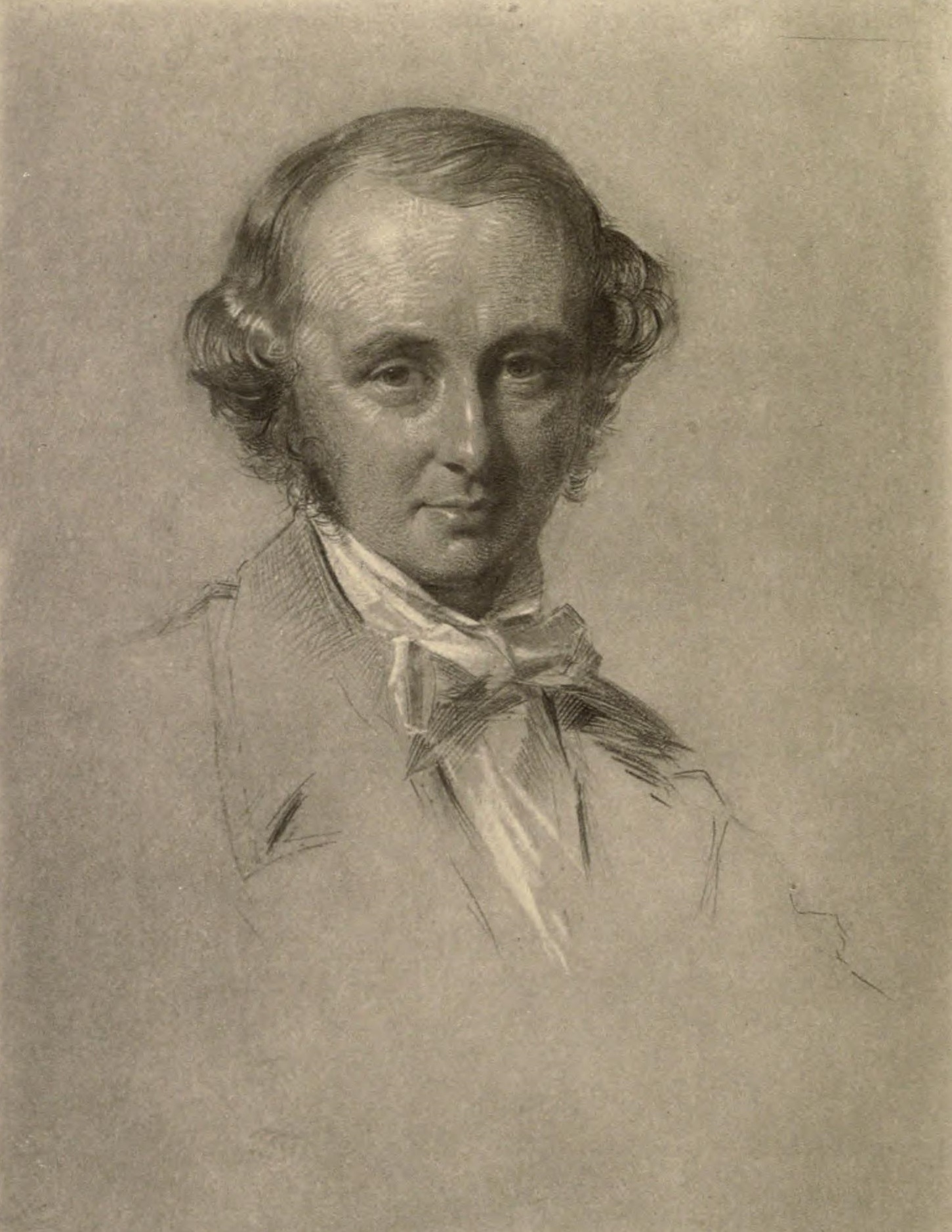|
Charmides (dialogue)
The ''Charmides'' (; grc-gre, Χαρμίδης) is a dialogue of Plato, in which Socrates engages a handsome and popular boy named Charmides in a conversation about the meaning of ''sophrosyne'', a Greek word usually translated into English as "temperance," "self-control," or "restraint." When the boy is unable to satisfy him with an answer, he next turns to the boy's mentor Critias. In the dialogue, Charmides and then later Critias champion that Temperance is "doing one's own work" but Socrates derides this as vague. The definition given next of "knowing oneself" seems promising but the question is then raised if something can even have the knowledge of itself as a base. As is typical with Platonic early dialogues, the two never arrive at a completely satisfactory definition, but the discussion nevertheless raises many important points. The ''Charmides'' is one of Plato's most homoerotic dialogues. Socrates admires Charmides' beauty at the beginning of the dialogue, saying "I ... [...More Info...] [...Related Items...] OR: [Wikipedia] [Google] [Baidu] |
Sophrosyne
Sophrosyne ( el, σωφροσύνη) is an ancient Greek concept of an ideal of excellence of character and soundness of mind, which when combined in one well-balanced individual leads to other qualities, such as temperance, moderation, prudence, purity, decorum, and self-control. An adjectival form is "sophron." It is similar to the concepts of '' zhōngyōng'' (中庸) of Chinese Confucianism and ''sattva'' () of Indian thought. Ancient Greek literature In Ancient Greek literature, sophrosyne is considered an important quality and is sometimes expressed in opposition to the concept of hubris. A noted example of this occurs in Homer's ''The Iliad''. When Agamemnon decides to take the queen Briseis away from Achilles, it is seen as Agamemnon behaving with hubris and lacking sophrosyne.North, Helen. 1966. ' (''Cornell Studies in Classical Philology'' 35). Ithaca: Cornell University Press. . . In Homer's ''Odyssey'', Odysseus avoids being turned by Circe the enchantress into an ... [...More Info...] [...Related Items...] OR: [Wikipedia] [Google] [Baidu] |
Dialogue
Dialogue (sometimes spelled dialog in American English) is a written or spoken conversational exchange between two or more people, and a literary and theatrical form that depicts such an exchange. As a philosophical or didactic device, it is chiefly associated in the West with the Socratic dialogue as developed by Plato, but antecedents are also found in other traditions including Indian literature. Etymology The term dialogue stems from the Greek διάλογος (''dialogos'', conversation); its roots are διά (''dia'': through) and λόγος (''logos'': speech, reason). The first extant author who uses the term is Plato, in whose works it is closely associated with the art of dialectic. Latin took over the word as ''dialogus''. As genre Antiquity and the Middle Ages Dialogue as a genre in the Middle East and Asia dates back to ancient works, such as Sumerian disputations preserved in copies from the late third millennium BC, Rigvedic dialogue hymns and the ''Mahab ... [...More Info...] [...Related Items...] OR: [Wikipedia] [Google] [Baidu] |
Zalmoxis
Zalmoxis ( grc-gre, Ζάλμοξις) also known as Salmoxis (Σάλμοξις), Zalmoxes (Ζάλμοξες), Zamolxis (Ζάμολξις), Samolxis (Σάμολξις), Zamolxes (Ζάμολξες), or Zamolxe (Ζάμολξε) is a divinity of the Getae and Dacians (a people of the lower Danube), mentioned by Herodotus in his ''Histories'' Book IV, 93–96, written before 425 BC.http://classics.mit.edu/Herodotus/history.mb.txt According to Jordanes' ''Getica'', he was a learned philosopher, before whom two other learned men existed, by the names of Zeuta and Deceneus. In modern times, theories and debate on Zalmoxis's religion by such scholars as Mircea Eliade are influenced by considerations of Romanian nationalism as well by pure historical interest. Herodotus Herodotus writes about Zalmoxis in book 4 of his ''Histories'': 93. ... the Getae are the bravest of the Thracians and the most just. 94. They believe they are immortal forever living in the following sense: they thin ... [...More Info...] [...Related Items...] OR: [Wikipedia] [Google] [Baidu] |
Dialogues Of Plato
Plato ( ; grc-gre, Πλάτων ; 428/427 or 424/423 – 348/347 BC) was a Greek philosopher born in Athens during the Classical period in Ancient Greece. He founded the Platonist school of thought and the Academy, the first institution of higher learning on the European continent. Along with his teacher, Socrates, and his student, Aristotle, Plato is a central figure in the history of Ancient Greek philosophy and the Western and Middle Eastern philosophies descended from it. He has also shaped religion and spirituality. The so-called neoplatonism of his interpreter Plotinus greatly influenced both Christianity (through Church Fathers such as Augustine) and Islamic philosophy (through e.g. Al-Farabi). In modern times, Friedrich Nietzsche diagnosed Western culture as growing in the shadow of Plato (famously calling Christianity "Platonism for the masses"), while Alfred North Whitehead famously said: "the safest general characterization of the European philosophical tradit ... [...More Info...] [...Related Items...] OR: [Wikipedia] [Google] [Baidu] |
Grace Starry West
Grace Starry West (October 5, 1946 – May 19, 2019) was an American classics scholar, best known as co-translator of a popular English edition of four texts on Socrates. She taught at the University of Dallas in Texas, and at Hillsdale College in Michigan. Early life and education Grace Starry was born in Oklahoma City, Oklahoma, the daughter of McKinley Starry and Joy Champlin Starry. She graduated from high school in Carlsbad, New Mexico in 1964, and from Scripps College in 1968. She held a Fulbright Scholar appointment for research at Heidelberg University from 1972 to 1974. She completed her doctoral studies at the University of California, Los Angeles (UCLA) in 1975, with a dissertation titled ''Women in Vergil’s Aeneid''. Career West was a member of the classics faculty at the University of Dallas from 1975 to 2011, including a stint as department chair from 1997 to 2006. She wrote commentaries on classical texts, and with her husband published widely-assigned transla ... [...More Info...] [...Related Items...] OR: [Wikipedia] [Google] [Baidu] |
Thomas G
Thomas may refer to: People * List of people with given name Thomas * Thomas (name) * Thomas (surname) * Saint Thomas (other) * Thomas Aquinas (1225–1274) Italian Dominican friar, philosopher, and Doctor of the Church * Thomas the Apostle * Thomas (bishop of the East Angles) (fl. 640s–650s), medieval Bishop of the East Angles * Thomas (Archdeacon of Barnstaple) (fl. 1203), Archdeacon of Barnstaple * Thomas, Count of Perche (1195–1217), Count of Perche * Thomas (bishop of Finland) (1248), first known Bishop of Finland * Thomas, Earl of Mar (1330–1377), 14th-century Earl, Aberdeen, Scotland Geography Places in the United States * Thomas, Illinois * Thomas, Indiana * Thomas, Oklahoma * Thomas, Oregon * Thomas, South Dakota * Thomas, Virginia * Thomas, Washington * Thomas, West Virginia * Thomas County (other) * Thomas Township (other) Elsewhere * Thomas Glacier (Greenland) Arts, entertainment, and media * ''Thomas'' (Burton novel) 1969 novel ... [...More Info...] [...Related Items...] OR: [Wikipedia] [Google] [Baidu] |
Walter Rangeley Maitland Lamb
Sir Walter Rangeley Maitland Lamb KCVO (5 January 1882 – 27 March 1961) was a British classical lecturer, author and translator. He was Secretary of the Royal Academy from 1913 to 1951. He was born in Adelaide, Australia. He was appointed a Commander of the Royal Victorian Order The Royal Victorian Order (french: Ordre royal de Victoria) is a dynastic order of knighthood established in 1896 by Queen Victoria. It recognises distinguished personal service to the British monarch, Monarchy of Canada, Canadian monarch, Mon ... (CVO), and on 1 January 1943, a Knight Commander of the Order (KCVO). Publications *''The Royal Academy : a short history of its foundation and development'' by Sir Walter R.M. Lamb (1951) References External links * {{DEFAULTSORT:Lamb, Walter Rangeley Maitland 1882 births 1961 deaths 20th-century translators Australian art historians Australian expatriates in the United Kingdom Australian Knights Commander of the Royal Victorian Order Austr ... [...More Info...] [...Related Items...] OR: [Wikipedia] [Google] [Baidu] |
Benjamin Jowett
Benjamin Jowett (, modern variant ; 15 April 1817 – 1 October 1893) was an English tutor and administrative reformer in the University of Oxford, a theologian, an Anglican cleric, and a translator of Plato and Thucydides. He was Master of Balliol College, Oxford. Early life Jowett was born in Camberwell, London, the third of nine children. His father was a furrier originally from a Yorkshire family that, for three generations, had been supporters of the Evangelical movement in the Church of England, and an author of a metrical translation of the Old Testament Psalms. His mother, Isabella Langhorne (1790–1869), was related to John Langhorne, the poet and translator of Plutarch. At the age of 12, Jowett was placed on the foundation of St Paul's School (then in St Paul's Churchyard) where he soon gained a reputation as a precocious classical scholar. Aged 18 he was awarded an open scholarship to Balliol College, Oxford, where he remained for the rest of his life. He began ... [...More Info...] [...Related Items...] OR: [Wikipedia] [Google] [Baidu] |
Thomas Taylor (neoplatonist)
Thomas Taylor (15 May 17581 November 1835) was an English translator and Neoplatonist, the first to translate into English the complete works of Aristotle and of Plato, as well as the Orphic fragments. Biography Thomas Taylor was born in the City of London on 15 May 1758, the son of a staymaker Joseph Taylor and his wife Mary (born Summers). He was educated at St. Paul's School, and devoted himself to the study of the classics and of mathematics. After first working as a clerk in Lubbock's Bank, he was appointed Assistant Secretary to the Society for the Encouragement of Art (precursor to the Royal Society of Arts), in which capacity he made many influential friends, who furnished the means for publishing his various translations, which besides Plato and Aristotle, include Proclus, Porphyry, Apuleius, Ocellus Lucanus and other Neoplatonists and Pythagoreans. His aim was the translation of all the untranslated writings of the ancient Greek philosophers. Taylor was an admire ... [...More Info...] [...Related Items...] OR: [Wikipedia] [Google] [Baidu] |
Theaetetus (dialogue)
The ''Theaetetus'' (; el, Θεαίτητος) is one of Plato's dialogues concerning epistemology, written BCE. In this dialogue set in a wrestling school, Socrates and Theaetetus discuss three definitions of knowledge: knowledge as nothing but ''perception'', knowledge as ''true judgment'', and, finally, knowledge as a '' true judgment with an account.'' Each of these definitions is shown to be unsatisfactory. Socrates declares Theaetetus will have benefited from discovering what he does not know, and that he may be better able to approach the topic in the future. The conversation ends with Socrates' announcement that he has to go to court to face a criminal indictment. The framing of the dialogue The dialogue is framed by a brief scene in which Euclid of Megara tells his friend Terpsion that he has a written record of a dialogue between Socrates and Theaetetus, which occurred when Theaetetus was quite a young man. This dialogue is then read aloud to the two men by a sl ... [...More Info...] [...Related Items...] OR: [Wikipedia] [Google] [Baidu] |
Protagoras
Protagoras (; el, Πρωταγόρας; )Guthrie, p. 262–263. was a pre-Socratic Greek philosopher and rhetorical theorist. He is numbered as one of the sophists by Plato. In his dialogue '' Protagoras'', Plato credits him with inventing the role of the professional sophist. Protagoras also is believed to have created a major controversy during ancient times through his statement that, "Man is the measure of all things," interpreted (possibly wrongly, since he disagreed) by Plato to mean that there is no objective truth; Protagoras seems to have meant that each person's own personal history, experiences and expectations, developed over their lifetime, determine their judgments, opinions, and statements regarding "truth" (which is the title of the book in which Protagoras made this statement). When a person makes a judgment about a certain thing—good or bad or beautiful or unjust—that person will differ from other people's judgments because their experience has been differen ... [...More Info...] [...Related Items...] OR: [Wikipedia] [Google] [Baidu] |
Oracle
An oracle is a person or agency considered to provide wise and insightful counsel or prophetic predictions, most notably including precognition of the future, inspired by deities. As such, it is a form of divination. Description The word ''oracle'' comes from the Latin verb ''ōrāre'', "to speak" and properly refers to the priest or priestess uttering the prediction. In extended use, ''oracle'' may also refer to the ''site of the oracle'', and to the oracular utterances themselves, called ''khrēsmē'' 'tresme' (χρησμοί) in Greek. Oracles were thought to be portals through which the gods spoke directly to people. In this sense, they were different from seers (''manteis'', μάντεις) who interpreted signs sent by the gods through bird signs, animal entrails, and other various methods.Flower, Michael Attyah. ''The Seer in Ancient Greece.'' Berkeley: University of California Press, 2008. The most important oracles of Greek antiquity were Pythia (priestess to Apoll ... [...More Info...] [...Related Items...] OR: [Wikipedia] [Google] [Baidu] |

.jpg)



